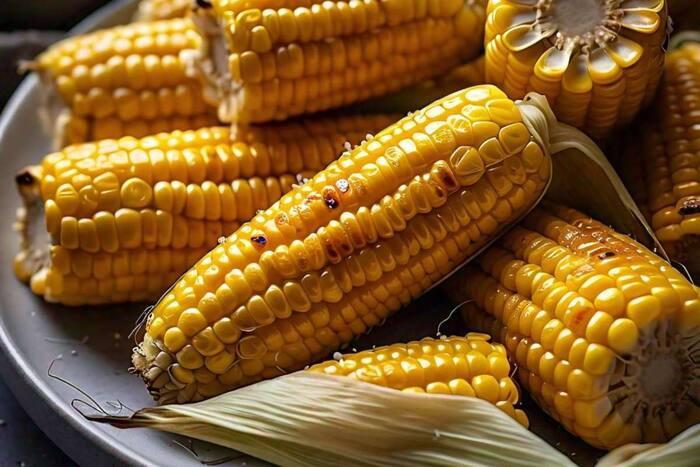
By clicking “Accept All Cookies”, you agree to the storing of cookies on your device to enhance site navigation, analyze site usage, and assist in our marketing efforts Cookies Policy.

Corn, a staple grain enjoyed worldwide, offers a range of health benefits due to its rich nutritional profile. Here’s a detailed look at the benefits of corn:
Corn is a good source of essential vitamins and minerals. It provides B vitamins such as thiamine (vitamin B1), niacin (vitamin B3), and folate (vitamin B9), which are crucial for energy production, nervous system health, and DNA synthesis. It also contains minerals like magnesium, phosphorus, and potassium, which support various bodily functions, including bone health, muscle function, and electrolyte balance.
Corn is rich in dietary fiber, particularly insoluble fiber, which helps promote healthy digestion. Fiber aids in regular bowel movements, prevents constipation, and supports a healthy gut microbiome. It can also help in managing weight by promoting a feeling of fullness and reducing overall calorie intake.
Corn contains antioxidants such as lutein and zeaxanthin, which are beneficial for eye health. These carotenoids help protect the eyes from harmful high-energy light waves like ultraviolet rays, reducing the risk of age-related macular degeneration (AMD) and cataracts.
The fiber in corn helps lower cholesterol levels by binding to bile acids and removing them from the body. This can contribute to a reduced risk of heart disease. Additionally, the potassium in corn helps maintain healthy blood pressure levels by balancing sodium in the body.
Corn is a good source of vitamin C, an essential nutrient for a strong immune system. Vitamin C helps stimulate the production of white blood cells, which are crucial for fighting infections, and acts as an antioxidant to protect cells from damage.
The presence of antioxidants and vitamins in corn contributes to healthy skin. Vitamin C supports collagen production, which is important for skin elasticity and repair, while antioxidants help protect the skin from damage caused by free radicals.
Corn is a good source of complex carbohydrates, which provide a steady release of energy. The carbohydrates in corn are broken down into glucose, which fuels bodily functions and physical activity.
The B vitamins in corn, particularly thiamine and niacin, play a role in maintaining cognitive function. Thiamine is important for nerve function and mental clarity, while niacin supports brain health and cognitive performance.
Corn contains essential minerals like magnesium and phosphorus that are involved in various metabolic processes. Magnesium helps with energy production and muscle function, while phosphorus supports bone health and cell repair.
Corn is a versatile food that can be incorporated into a variety of dishes, from salads to soups and snacks. Its high fiber content and complex carbohydrates make it a satisfying and filling food, helping to manage hunger and prevent overeating.
Incorporating corn into a balanced diet can provide these health benefits and contribute to overall well-being. However, it is important to consume it in moderation and as part of a varied diet to maximize its benefits.
For breaking news and live news updates, like us on Facebook or follow us on Twitter and Instagram. Read more on Latest Dishes News on India.com.